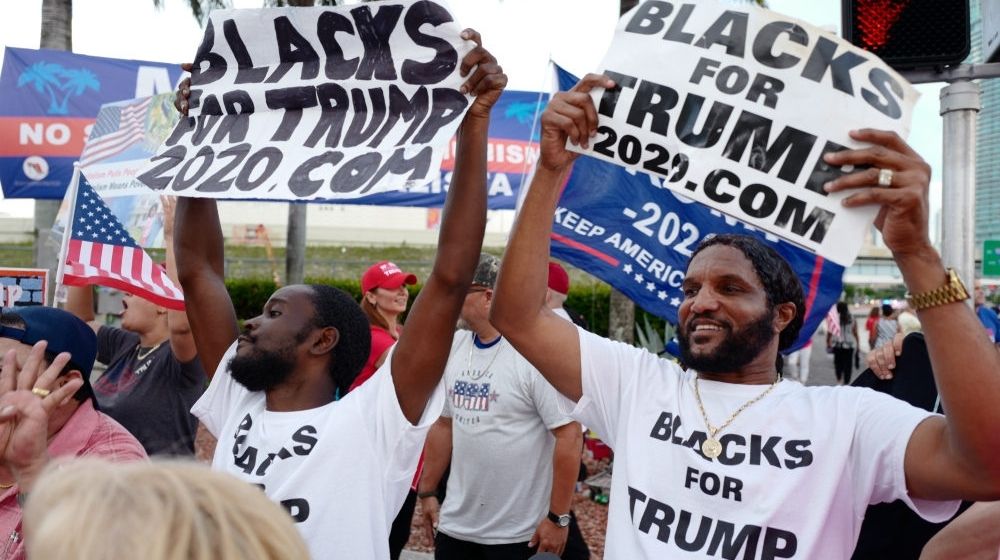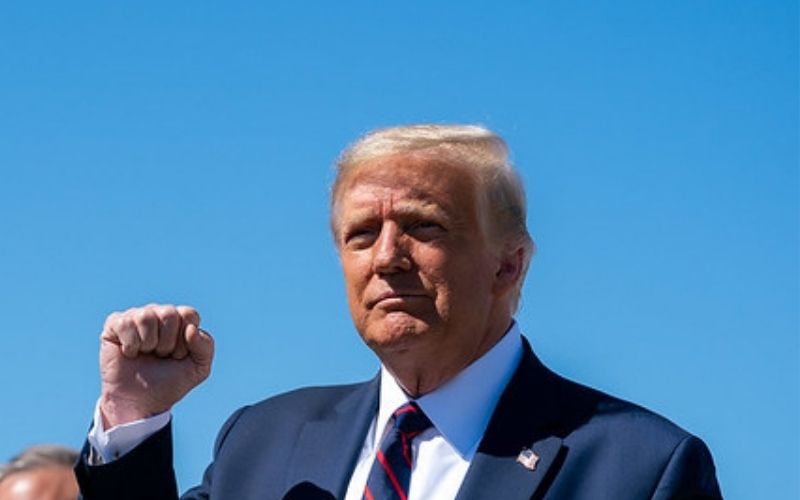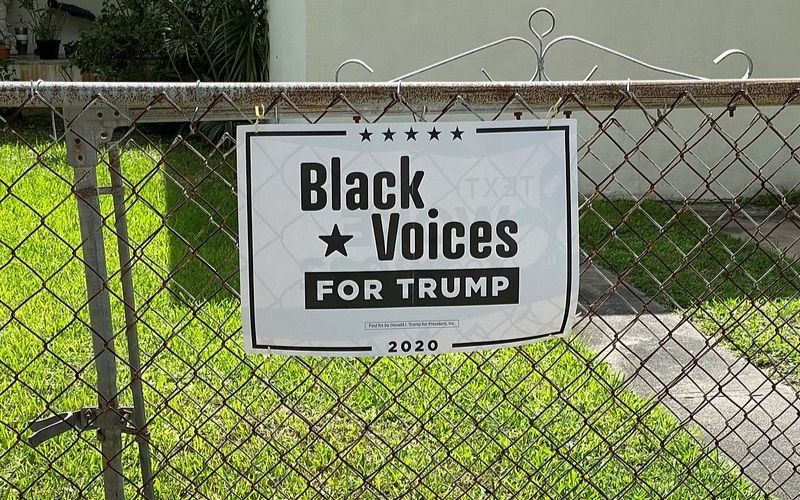Politics
‘You’re Thrown in a Box’: Black Voters and the Democratic Party

Delvonte Arnold considered himself a Democrat until his second year of college when he began feeling disenfranchised from the Democratic Party. During the 2016 primaries, his views aligned with Sen. Bernie Sanders' more progressive platform, and he supported Sanders in both the 2016 and 2020 Democratic primaries.
“Studying African American history, Marxism and pan-Africanism was the candle,” Arnold said. “But Bernie Sanders was definitely the fire. I think I was willing to settle until Bernie Sanders brought the inspiration of the likes of Dr. King.”
After Sanders was knocked out of the Democratic primary in 2016, Arnold considered writing him in or voting for a third-party candidate in the general election, but he didn't want to “waste” his vote. He had the same thought process this election.
“I plan on voting for Trump, not because I believe in him, but as a sign of resistance,” Arnold said. “I want Trump to win. … I don't want Joe Biden, and a vote for a third-party candidate is a vote for Joe Biden.”

Since 2016, Arnold has grown used to people telling him he's “crazy.” As a Black man and member of a heavily-Democratic family, Arnold said he's viewed as an outcast when he tells people he's voting for President Donald Trump's reelection. He's heard The Young Turks' podcast quip that “Not every Trump supporter is a racist, but every racist is a Trump supporter” too many times to count.
“In a way, you're thrown in a box and nobody wants to hear,” Arnold said. “Everyone just wants to assume.”
Most people view voting for a third-party candidate as giving away their vote to the candidate they don't want to win.
“A vote for a third-party is a waste of a vote, to be quite frank,” Jakobi Williams, associate professor of history at Indiana University, said. “It is indirectly voting for the powers that are in office now. A third-party candidate has a snowball's chance in hell of winning in our two-party system.”
Williams empathizes with voters who feel disenfranchised from the Democratic Party – and from politics in general. Williams, who voted early, said he “reluctantly” cast a ballot for former Vice President Joe Biden because he felt Biden best represents his interests. However, Williams said both political parties need to stop thinking that certain demographics, such as African American and Latino voters, all think the same way.
“People speak in general terms without considering what differences may exist within a community,” Williams said. “We do that with most groups, not just African Americans.”
Instead of having a “Black Agenda” or fighting for the “Black vote,” Williams said politicians, namely Democrats, should be specific.
“Within the Black community, we're divided by geographic location, class, religion and political ideology,” Williams said. “If you're trying to reach the more progressive faction of the Black community, then say that. If you're trying to reach the more faithbased Black voters, say that.”

This lack of specificity helped pull Arnold away from the Democratic Party.
“People of Color agendas sound great until you realize that the issues of Latino communities and so on aren't the same as the African American community. I am not a person of color, I am an African American, and you can't solve my problems by putting me in a box and providing a general solution.”
Instead of an agenda based on ending racism, Arnold said he wants an economic agenda specifically targeted toward African Americans.
“Behavior is linked to economics,” Arnold said. “And the reason why things are happening and why we have to say ‘Black Lives Matter‘ is because of issues that exist related to economics that perpetuates stigmas that lead to brutality and mistreatment.”
While Williams understands not feeling represented by a political party, he urges everyone to go to the polls and focus on local issues and elections. As the demographics shift in the Democratic party and older, moderate voters die, they'll be replaced with younger, more progressive voters. This will keep moving the party left of center and better connect it to those who feel disenfranchised.
“Our most important power as individuals is to vote,” Williams said. “When we vote, we win, particularly people of color and African Americans. Pay attention to local politics, not party politics. When you're only looking up at the top, you fail to see what's right in front of you.”
Contact staff writer Breanna Cooper at 317-762-7848. Follow her on Twitter @BreannaNCooper.
© Copyright 2020 Indianapolis Recorder, The (IN)
UP NEXT:
